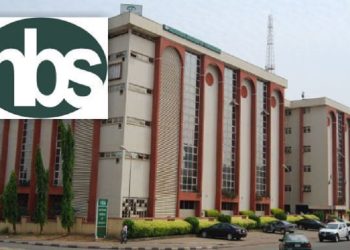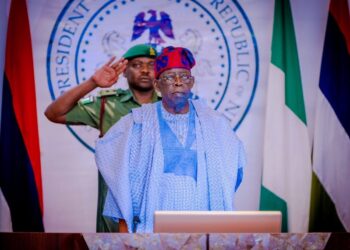In a recent update to its World Economic Outlook, the International Monetary Fund (IMF) has projected a brief economic ascent for South Africa, foreseeing it temporarily surpassing both Nigeria and Egypt as the largest economy on the African continent. The IMF’s analysis anticipates South Africa’s gross domestic product (GDP) reaching $401 billion in 2024, surpassing Nigeria’s $395 billion and Egypt’s $358 billion.
However, this short-lived surge is expected to be reversed, with Nigeria poised to reclaim its position as the largest economy in Africa. South Africa is projected to drop to the third position behind Egypt by 2026, according to the IMF’s report.
This economic fluctuation can be attributed to several factors, including currency devaluations that have impacted the GDP of Nigeria and Egypt. While South Africa’s emergence as Africa’s largest economy in 2024 is predicted to be temporary, the long-term trajectory indicates that Nigeria and Egypt will regain their top positions, with Nigeria holding a stronger lead.
Bloomberg economists suggest that the IMF’s projections reflect its expectations for meaningful reforms in these economies. To realize the GDP expansion forecasted by the IMF, experts believe that Nigeria must address issues such as restoring oil output to its potential, tackling insecurity, and resolving bottlenecks in the power sector.
President Bola Tinubu, who assumed office at the end of May 2023, has implemented significant policy changes aimed at restoring Nigeria’s finances. These policies include reforming the foreign exchange system, eliminating costly petrol subsidies, addressing dollar shortages, and increasing tax revenue. Although these measures may initially pose challenges for the populous country, they are expected to yield long-term benefits.
The IMF projects that Nigeria’s GDP will grow by 3.1% in 2024, an improvement over the 2.9% growth forecasted for 2023. In Egypt, currency devaluations have been implemented three times since the beginning of 2022, with the Egyptian pound losing nearly half its value against the US dollar. The government, led by President Abdel-Fattah El-Sisi, is looking to extend his rule until 2030 and has secured a $3 billion IMF package that includes a more flexible currency rate. However, this move is likely to be delayed until after the December elections.
The IMF reviews scheduled for March and September have been postponed due to the electoral delay. A successful review could grant Egypt access to approximately $700 million in deferred loan tranches, a $1.3 billion resilience fund, and potentially substantial Gulf investments.
South Africa’s currency, the rand, has seen a 10% depreciation against the US dollar in the current year. The IMF anticipates that South Africa’s economy will grow by 0.9% in 2023 and 1.8% in 2024, with the potential to achieve growth rates of 2.5% to 3% if it addresses challenges in the electricity sector, resolves logistical bottlenecks, and implements reforms.
This economic forecast highlights the evolving economic landscape of African nations and underscores the significance of reforms and policy adjustments in achieving sustained growth.











